About the Editors
Editor-in-Chief
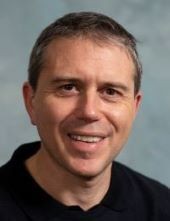 John O'Neill, PhD
John O'Neill, PhD
MRC Laboratory of Molecular Biology
Cambridge, UK
John read Biochemistry at New College, Oxford, before PhD research on circadian neurobiology with Mick Hastings at the MRC LMB in Cambridge, UK. Post-doctorly, John worked on daily clocks in algae and human cells, then joined the LMB's Cell Biology division as a group leader in 2013. The O’Neill group investigates fundamental functions and mechanisms of biological rhythms in mammals and other eukaryotes.
Associate Editors
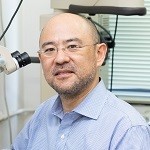 Masao Doi, PhD
Masao Doi, PhD
Kyoto University
Kyoto, Japan
Masao Doi received his BSc in 1998 and Ph.D. in 2003 from the Tokyo University, Japan. Following a postdoctoral period in the Institut de génétique, biologie moléculaire et cellulaire of the Centre national de la recherche scientifique in France (2003-2006), he joined the Graduate School of Pharmaceutical Sciences of Kyoto University, where he has been Professor since 2018. His current research activities include investigation of transcriptional and post-transcriptional regulation of circadian clock genes, neuronal and hormonal regulation of the suprachiasmatic nucleus in the brain, with a focus on the G-protein-coupled receptors involved, and exploration of mechanisms of diseases involving circadian clock malfunction, which include steroid hormone related hypertension and dry eye disease.
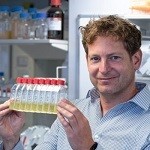 Gerben van Ooijen, PhD
Gerben van Ooijen, PhD
University of Edinburgh
Edinburgh, United Kingdom
In the living cell, virtually nothing stays the same over the course of a day. My lab employs the minimal model cells of Ostreococcus tauri to identify and characterise mechanistic bases of cellular rhythms. We use comparative biology to triangulate fundamental aspects of rhythmicity in any eukaryotic cell as opposed to cell type specific adaptations. We also work with the model plant Arabidopsis to study the role of biological timing for plant health and productivity.
 Jonathan Lipton, MD, PhD
Jonathan Lipton, MD, PhD
Department of Neurology and Kirby Neurobiology Center, Boston Children's Hospital and Harvard Medical School
USA
Our goals are to understand the rhythmic organization of cellular function in health and disease so that we might use temporal information - or its disruption - to identify biomarkers, therapeutics, and fundamental understanding. Specific areas of interest include: circadian clocks in synaptic function and dysfunction, defining the signaling logic regulating rhythms of proteostasis in neural and non-neural systems, molecular mechanisms linking clocks to sleep homeostasis, and defining the molecular and biochemical logic of circadian resilience
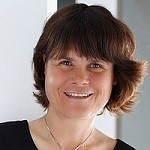 Eva Wolf, PhD
Eva Wolf, PhD
Johannes Gutenberg University Mainz, Institute of Molecular Physiology
Mainz, Germany
Eva did her PhD in structural biology at the EMBL Heidelberg. As postdoc at Rockefeller University, New York, she determined crystal structures of acetyltransferases, including the melatonin rhythm enzyme serotonin N-acetyltransferase. She started her own research group at the Max-Planck-Institute and moved to Mainz University in 2013. The Wolf group conducts structural, biochemical and biophysical studies of proteins regulating circadian and circalunar rhythms to elucidate their basic molecular mechanisms.
 Aarti Jagannath, DPhil
Aarti Jagannath, DPhil
University of Oxford
Oxford, UK
I am a BBSRC David Phillips Fellow at the Sleep and Circadian Neuroscience Institute within the Nuffield Department of Clinical Neuroscience. My group researches the molecular mechanisms that regulate circadian clock entrainment. All organisms show 24h rhythms in their physiology and behaviour, orchestrated by a circadian clock that coordinates internal time with the external world. Our research aims to understand the molecular mechanisms by which the circadian clock picks up cues from the external environment and is set to the right time. Some of our ongoing projects are listed below. 1) The role of Salt Inducible Kinases in regulating sleep and circadian rhythms: 2) The interaction of sleep and circadian signalling pathways: 3) The effect of light and other environmental inputs on the molecular clockwork:
 Charna Dibner, PhD
Charna Dibner, PhD
University of Geneva
Geneva, Switzerland
Dr. Charna Dibner is interested in studying the molecular and functional interplay between the network of circadian oscillators and mammalian physiology. In particular, the Dibner group is focusing on the implication of circadian clockwork disruption in the pathophysiology of human metabolic diseases and cancer.
Advisory Editors

Leonie Welberg
Leonie Welberg received her PhD from Edinburgh University and did postdoctoral research in the Department of Psychiatry and Behavioral Sciences at Emory University. Her research focused on the role of stress in the etiology of depression in animal models. Prior to joining Nature Neuroscience, she was an editor at Nature Reviews Neuroscience from 2006-2014, and a locum manuscript editor at Nature in 2015-2016. Leonie's research interests include psychiatric and neurodevelopmental disorders, neural circuits and systems neuroscience. She is based in the London office.
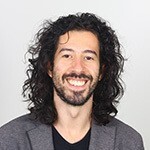
Daniel Morales
Daniel obtained a PhD in neurobiology at McGill University, where his research was on spinal motor neuron development in the chick and mouse embryo. During his postdoc at EPFL he worked on Drosophila neurogenetics and computational methods of behavioral analysis. Daniel joined the Berlin office of Nature Communications in February of 2022 and handles cell biology manuscripts, particularly those relating to vesicles and trafficking, the cytoskeleton and mechanobiology, and biomolecular condensates and phase separation.
Editorial Board Members:
Jihwan Myung, PhD, Taipei Medical University, Taipei City, Taipei, Taiwan
Priya Crosby, PhD, University of California, Santa Cruz, USA
Andrés Romanowski, PhD, Utrecht University, Utrecht, The Netherlands
Carolina Gutierrez Herrera, PD, PhD, Center of Experimental Neuroscience, Neurology department, University of Bern University Hospital, Bern, Switzerland
Luis Larrondo, PhD, iBio - P. Universidad Católica de Chile, Santiago, Chile
Jennifer Evans, PhD, Marquette University, Biomedical Sciences, Milwaukee, WI, USA
Sarah Reece, PhD, University of Edinburgh, Edinburgh, UK
Carrie Partch, PhD, University of California Santa Cruz, Santa Cruz, CA, USA
Michael H. Hastings, PhD, MRC Laboratory of Molecular Biology, Cambridge, UK
Frederic Gachon, PhD, The University of Queensland, Brisbane, Queensland, Australia
Mike Haydon, PhD, University of Melbourne, Parkville, VIC, Australia
David Bechtold, PhD, Centre for Biological Timing, University of Manchester, Manchester, UK
Penelope Lewis, PhD, Cardiff University, Cardiff, UK
Rachel Edgar, PhD, Imperial College, London, UK
Mirela Domijan, PhD, University of Liverpool, Liverpool, UK
Antony Dodd, PhD, John Innes Centre, Norwich, UK
Pieterjan Dierickx, PhD, Max Planck Institute for Heart and Lung Research, Bad Nauheim, Germany
Robert Dallmann, PhD, University of Warwick, Coventry, UK
Claudia Lodovichi, MD, PhD, Neuroscience Institute - CNR, Padova - Italy
Andrew McHill, PhD, Sleep, Chronobiology, and Health Laboratory, Oregon Health & Science University, Portland, OR, USA
Hiroki Ueda, MD, PhD, The University of Tokyo, Tokyo, Japan
Jason Rihel, PhD, University College London, London, England
Helen Causton, DPhil, Columbia University Medical Center, New York, NY, USA
Mattia Aime, PhD,University of Bern, Department of Biomedical Research / Dept. of Neurology, Centre for Experimental Neurology (ZEN), Bern, Switzerland
Jae Kyoung Kim, PhD, KAIST, Daejeon, Republic of Korea
Stacey Harmer, PhD, University of California, Davis, Davis, CA, USA
Motomu Endo, PhD, Nara Institute of Science and Technology, Ikoma, Nara, Japan
Yu Hayashi, PhD, University of Tokyo, Tokyo, Japan
Ganna Panasyuk, PhD, Institute Necker Enfants Malades (INEM), Inserm U1151/CNRS UMR 8253, University Paris Cité, Paris, France
Chunghun Lim, PhD, Department of Biological Sciences, KAIST, Daejeon, Republic of Korea
Anita Lüthi, PhD, Department of Fundamental Neurosciences, University of Lausanne, Lausanne, Switzerland
Shoi Shi, PhD, International Institute for Integrative Sleep Medicine, University of Tsukuba, Tsukuba, Japan
Hikari Yoshitane, PhD, Tokyo Metropolitan Institute of Medical Science, Tokyo, Japan
Jun Yan, PhD, Center for Excellence in Brain Science and Intelligence Technology, Chinese Academy of Sciences, Shanghai, China
Manuel Spitschan, PhD, Max Planck Institute for Biological Cybernetics & Technical University of Munich, Tuebingen & Munich, Germany
Ray Norbury, PhD, Brunel University London, London, UK
Ritchie E Brown, Dr. Rer. Nat., VA Boston Healthcare System & Harvard Medical School West Roxbury, MA, USA
Luiz S. Menna-Barreto, PhD, Universidade de São Paulo, São Paulo, Brazil
Shobhan, Gaddameedhi, PhD, North Carolina State University, Raleigh, USA
Wanhe Li, PhD, Texas A&M University, College Station, TX, USA
Maria S. Robles, PhD, Faculty of Medicine, LMU Munich, Munich Germany
Sanjit, Dey, PhD, Department of Physiology, University of Calcutta, Kolkata, WB, India
John Axelsson, PhD, Stockholm University, Stockholm, Sweden
Martin Roland Ralph, PhD, University of Toronto, Toronto, ON, Canada
Declan G. Lyons, PhD, University College London, London, UK
Gimmi M. Ratto, PhD, Institute of Biophysics, CNR, Pisa, Italy
David W. Ray, PhD, University of Oxford, Oxford, UK
Leila Tarokh, PhD, University of Bern, Bern, Switzerland
Brian P. Delisle, PhD, University of Kentucky, Lexington, KY, USA
Charalambos P. Kyriacou, PhD, University of Leicester, Leicester, UK
Eric E. Zhang, PhD, National Institute of Biological Sciences, Beijing, China
Roelof A. Hut, PhD, University of Groningen, Groningen, Netherlands
Interested in joining the journal team?
If you are interested in joining the journal as an Editorial Board Member or Associate Editor, please complete this Google form. Associate Editors are part of the editorial team that handle manuscripts, while Editorial Board Members are regular reviewers and are consulted for ad hoc advice. We will contact you if your expertise meets the needs of the journal.
Nature Portfolio journals are committed to promoting practices that support diversity, equity and inclusion in science communication and publishing, and we strongly encourage gender, race, ethnic, geographic, career stage and other diversity in our journal teams. Our in-house staff will use your information only for the purposes of identifying new editorial team or board members. Please contact the journal by email if you would like to remove your information from these records.
Please note that we are not able to respond to all applicants.
